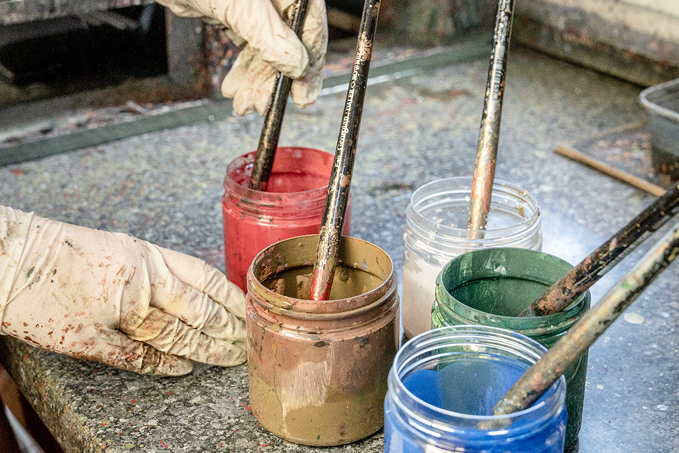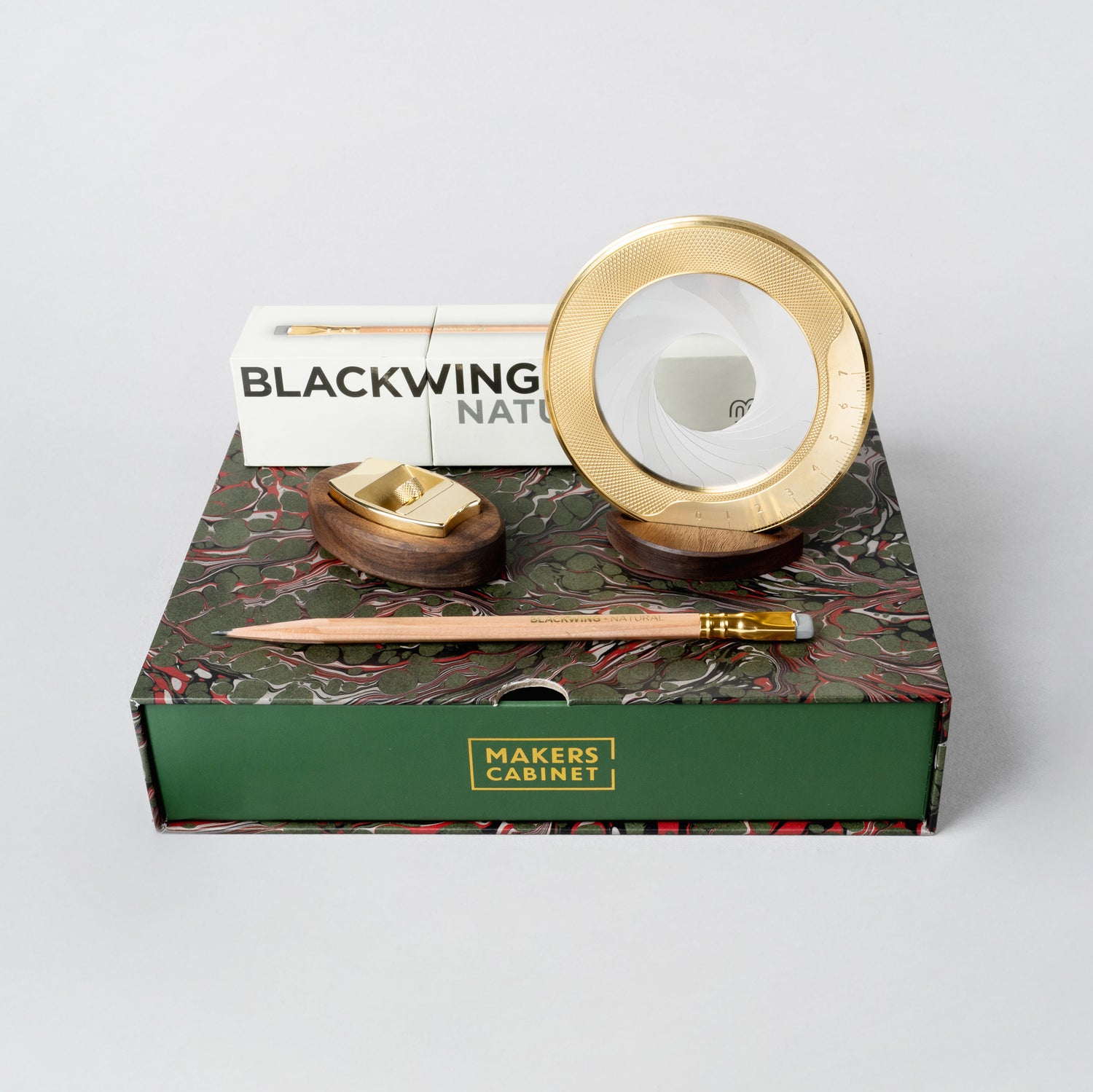
For those that haven’t been introduced to the wonderful world of marbling, can you give us a quick explanation of the craft?
Marbling is a centuries-old craft with origins that can be traced as far back as 12th century Japan. It is a method of service decoration where paints are dropped using a brush onto a viscous, gelatinous substance which we call our 'size'. The paints float on this size and can be moved on the surface using styluses and combs, which can create a huge variety of different patterns which all have their own names from 'Turkish Spot' to 'Italian Vein'.
Once the marbler is happy with the pattern, a sheet of paper treated with 'Alum' (a mordant which makes the paint stick) is laid down onto the design then lifted to reveal the pattern, which has now been transferred to the paper.

Since you started out in textile design, what led you to become a paper marbling expert? Are there any crossovers from textile design that have given you an edge in paper marbling?
My route to becoming a paper marbler was fairly serendipitous as after leaving University in 2002, I took on a temporary administrative position at a Traditional Bookbinders based in Bath. This two-week post turned into seven years, and it was at this point, I was offered the chance to go and learn to marble paper with a local marbler Ann Muir, a real doyenne of the craft who was looking to sell her business to the bookbinders. After the bookbinders went out of business and Ann sadly passed away, my father suggested I carry on marbling, so we set up a little log cabin studio in my back garden, where I still work now with my husband.

I think coming from a textile background and a Foundation in Art and Design prior to that has meant that I already had a love for pattern, colour and form, all of which are fundamental in marbling.

People can now see your work on the walls of The Hospital Club, the baubles on their Christmas trees and now our gift set packaging! Where do you see the future of marbling going?
Over the last few years, the art of marbling has seen a real increase in popularity, especially as people can see the amazing variety of ways in which these wonderful papers can be used. Last year we worked with Jo Loves (owned by Jo Malone) and created some marbled designs which were at the forefront of their Christmas campaign and featured heavily in their Christmas window. Real marbled papers have been used in Interiors, for example, in the Ned in London and many people's homes as both pieces of affordable original artwork and as lampshades.

We would really love to just keep highlighting this magical craft, sharing what we do on social media (people love watching our videos as there is something very therapeutic about watching the paints swirl on the surface of the size). We have also seen an increase in people wanting to have a go at marbling themselves, so provide a range of items that people can buy to have a go at home - the only downside is it's a very messy craft!

You've done great work to ensure the marbling craft continues to thrive. What's being done, and what work do you think needs to happen to ensure marbling survives as a craft and is passed on to the next generation?
More and more people are trying their hand at marbling, and there are now more professional and amateur marbler's than ever before, and I do think this will continue to grow. Companies, like Makers Cabinet, supporting marbling really helps to showcase what can be done and promote it to a wider audience. I love to teach marbling and offer one-to-one workshops from my studio; I just love seeing someone who has never marbled before lifting their first sheet up off the size. We offer supplies and comprehensive instructions for people who may want to have a go at home.

How does people's perception of paper marbling differ from reality?
I would say there are probably two main misconceptions; the first is that people often think of it as being more of a print-making technique, and we are regularly asked how many sheets we get from one application of paint. Every design created on the 'size' can only be taken off on one sheet of paper, so if we need to make ten sheets of a design, then every part of the process needs to be undertaken ten times.

This means that every sheet will be slightly different to the next, even if the overall pattern and colours used are the same, and this is all part of the charm. The second is that people often think that if we are making a specific design that with one 'go' we will be able to produce that certain sheet. In reality, there is much tweaking involved, and if someone wants our pattern No.1, for example, we may well need to make 5-8 sheets before we feel that we have everything balanced and looking just right!

We were shocked to find out that you are a team of two. We imagined a much larger team; how do you manage the workload?
Me and my husband Craig work here together full time, but we do have some extra support when we need it from my father, who helped me set up the business, and my mum sometimes comes in in the lead-up to Christmas to help ribbon the Christmas baubles.
As with all small craft businesses, there is so much that goes on behind the scenes, and the physical making is a small part of the business. So much of our time is spent packing, answering enquiries, accounts and keeping on top of ordering in materials. We need to be very organised and always planning ahead to keep on top of things.

After all these years making marbled papers, what inspires you to keep exploring new ideas?
I am someone that is very easily inspired by everything around me, which means I always have more ideas than I am able to process, it's particularly difficult when we are so busy to be able to fit in all the experiments and ideas I have, but this is such an important part of being creative that I am going to start carving out time to be able to do more of this!

